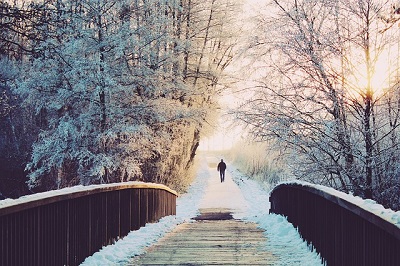Male Attention! Be Careful of Developing Prostate Diseases Due to Cold in Winter
As winter approaches and temperatures drop sharply, everyone is wearing warm clothing and starting to keep warm. However, in this process, male friends should not overlook a critical area—the prostate. Many people do not know that the prostate is an organ that is sensitive to cold and also needs protection against the cold to avoid developing problems, such as prostatitis.

What is the prostate?
The prostate is an essential organ in the male reproductive system. Its shape and size vary from person to person, generally resembling a chestnut weighing about 20 grams. The prostate fluid it secretes is one of the main components of semen and plays a crucial role in maintaining the normal function of the male reproductive system.
However, due to various reasons, the prostate is also prone to diseases. Therefore, protecting the prostate and preventing diseases is crucial for maintaining male health.
The Prostate: An Organ Sensitive to Cold
The prostate is an essential part of the male reproductive system and is highly sensitive to temperature changes. In cold weather, the prostate reacts to the stimulation of cold air with a series of reactions. Prostate diseases show obvious seasonality and cold environments may increase the risk of prostate inflammation and worsen the condition.
Furthermore, epidemiological studies suggest that the incidence of prostate diseases in men living in high-altitude and high-latitude areas is higher than in other regions of the world. This may be related to cold climate, relative hypoxia, chronic stress, and reduced outdoor activities.
Why is the Prostate "Sensitive" to Cold?
The body usually enters a defensive stress state to cope with the severe cold of winter. In this situation, if one ignores keeping warm, the excitability of the sympathetic nervous system may significantly increase, causing the prostate gland to contract. At the same time, the blood vessels and ducts of the prostate will also dilate, leading to chronic congestion. This congestion can further increase the pressure inside the urethra, and in severe cases, it may lead to the retrograde flow of prostatic fluid, resulting in various uncomfortable symptoms.
Cold weather can lower the body's immunity and affect the prostate's metabolism and immune function, making it more susceptible to infection and inflammatory stimuli. Inflammation stimulated in the prostate can lead to various discomfort symptoms such as frequent urination, urgency, dysuria, perineal and testicular pain.
In the low-temperature environment of winter, the internal pressure of the prostate and seminal ducts may increase. In this case, smooth muscle fibers become tense, leading to increased resistance at the outlet of the prostate, thereby affecting the normal drainage of prostatic fluid. This situation of poor drainage and frequent contraction of muscles after being stimulated by cold further exacerbates congestion and swelling of the prostate.
In addition, winter is also the peak season for colds, and some cold medications may cause prostate congestion or weakness of the detrusor muscle of the bladder, leading to difficulty urinating and acute urinary retention. Alcohol consumption can also exacerbate similar symptoms.
How to Keep the Prostate Warm and Prevent Cold?
Add warm clothing for warmth. In the cold winter, it is necessary to add clothing in time, such as wearing long johns and wool pants to ensure body warmth.
Drink more warm water to maintain adequate hydration. In winter, sweating decreases, and water intake will correspondingly decline. Concentrated urine and reduced urination frequency may have adverse effects on the prostate and other organs, such as the kidneys and bladder. Therefore, drink enough water daily to help flush the urethra and promote the discharge of prostatic secretions.
Avoid holding urine. To keep the urethra unobstructed, do not resist the urge to urinate to avoid urine reflux. Holding urine for a long time will increase the pressure of the bladder on the prostate, further affecting the condition.
Avoid prolonged sitting. Long periods of sitting will burden the male prostate, compressing the prostate and causing poor local blood circulation. In winter, try to avoid sitting on cold chairs or stone benches.
Engage in appropriate physical exercise. Although wearing thick winter clothing helps improve body immunity, promote overall blood circulation, and warm the prostate, proper exercise helps. Walking, jogging, practicing Tai Chi, and Eight Brocades are all good choices.
Persist in taking warm baths. Taking 2-3 warm baths per week in winter, or taking a warm sitz bath if inconvenient, can warm the prostate, relieve prostate and muscle tension, and alleviate prostate discomfort symptoms.
Conclusion
In summary, in this cold winter season, men should pay attention to keeping themselves warm and unique attention to prostate health. Only in this way can prostate diseases be effectively prevented and treated, ensuring the health and comfort of the body.
Recommended Readings:
Why Do You Experience Pain During Prostate Massage?
Prostate Congestion and Prostatitis: Does the Former Lead to the Latter?
This Fruit is the 'Guardian' of the Prostate, with 3 Major Benefits, Men Should Eat It Regularly!



